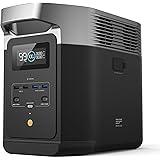As part of its enforcement activities, the Food and Drug Administration sends warning letters to entities under its jurisdiction. Some letters are not posted for public view until weeks or months after they are sent. Business owners have 15 days to respond to FDA warning letters. Warning letters often are not issued until a company has been given months to years to correct problems. The FDA frequently redacts parts of warning letters posted for public view.
Onofrio’s Fresh Cut Inc.
New Haven, CT
A food firm in Connecticut is on notice from the FDA for serious violations after inspectors found Listeria in the company’s production facility.
In a Jan. 10, 2022, warning letter the FDA described inspections on July 13-29, 2021, at Onofrio’s Fresh Cut Inc. in New Haven, CT.
The FDA’s inspection revealed that the firm was not in compliance with FDA regulations and resulted in the issuance of an FDA Form 483.
Some of the cited violations:
Hazard Analysis and Risk-Based Preventive Controls Violations:
- The firm did not appropriately evaluate contamination with environmental pathogens, such as Listeria monocytogenes, to determine whether it is a hazard requiring a preventive control in its fresh-cut produce.
FDA’s inspection included the collection of environmental swabs on July 13, 2021, during the production of ready-to-eat (RTE) fruits and vegetables. Four of 71 swabs were confirmed positive for Listeria monocytogenes. The positive findings included a mixing room floor drain adjacent to a table where RTE celery was being cut, forklift wheels, a wheel on a rolling cart holding shrimp and seafood salad ingredients, and a packing room broom handle.
The recurring presence of Listeria monocytogenes in their facility is significant in that it demonstrates their sanitation procedures have been inadequate to significantly minimize or prevent Listeria monocytogenes in the facility.
- The firm did not identify and implement an appropriate preventive control to provide assurances that any hazards requiring a preventive control will be significantly minimized or prevented and the food manufactured, processed, packed, or held by their facility will not be adulterated.
Specifically, they did not establish supply-chain controls for pathogens such as Listeria monocytogenes, pathogenic E. coli, and Salmonella at the receiving step for incoming produce.
Current Good Manufacturing Practice:
- The firm’s plant was not constructed in such a manner that drips or condensate from fixtures, ducts and pipes does not contaminate food or food-contact surfaces. Specifically, on July 14, 2021, FDA investigators observed the following conditions:
- Condensate droplets on the underside of the refrigeration unit above a blue bin containing RTE baby carrots and above the (redacted) conveyor in the vegetable washroom.
- Condensate droplets on the ceiling throughout the vegetable mixing room directly above uncovered RTE vegetables including peppers, onions, and zucchini, and above food-contact surfaces.
- The firm’s plant did not have adequate sanitary facilities and accommodations, because plumbing was not adequately installed and maintained to avoid constituting a source of contamination to food, water supplies, equipment, or utensils or creating an unsanitary condition. Specifically, on July 13, 2021, the hand wash sink located at the end of the (redacted) conveyor in the vegetable washroom was leaking a large amount of water onto the floor while in use. Further, on July 14, 2021, a small amount of water was leaking from underneath the same hand wash sink (near the pedals) onto the floor. The firm explained that the leak at the hand sink was because of a clogged drain.
- The firm did not clean and sanitize their utensils and equipment in a manner that protects against contamination of food-contact surfaces. Specifically, on July 15, 2021, during the pre-operational inspection, the cutting board in the vegetable cutting room failed inspection and was recleaned. During recleaning, an employee was observed placing a bucket containing soap solution, which was previously located on the production room floor, on top of the cutting board during the wash step. Additionally, the same employee placed the water hose spray nozzle that was previously on the production room floor onto the discharge side of the (redacted) conveyor.
- The firm did not clean non-food-contact surfaces of equipment in a manner and as frequently as necessary to protect against contamination of food. Specifically, on July 14, 2021, an employee was observed rinsing the floor and cutting boards with a water hose in the mixing room. Overspray from the hose was in close proximity to two partially covered bins with RTE cut celery.
- The firm did not take adequate precautions to ensure that production procedures do not contribute to contamination. Specifically, on July 13, 2021, while employees were processing RTE onions in the (redacted) room, the (redacted) line was stretched across the production room floor and then draped over a bin containing RTE processed onions.
The full warning letter can be viewed here.
Concord Farms Inc.
Vernon, CA
An import company in California is on notice from the FDA after an inspection was initiated by a recall. The recall was because Listeria monocytogenes was found on their fresh enoki mushrooms.
In a Jan. 6 warning letter, the FDA described a July 20 through Aug. 3, 2021, Foreign Supplier Verification Program (FSVP) inspection of Concord Farms Inc. in Vernon, CA.
The FDA’s inspection revealed that the firm was not in compliance with FSVP regulations and resulted in the issuance of an FDA Form 483a.
The firm’s significant violations of the FSVP regulation are as follows:
- The firm did not develop, maintain, and follow an FSVP. Specifically, they did not develop an FSVP for each of the following foods that they import:
- Ginger Root imported from (redacted)
- Pear imported from (redacted)
- Ginger Root imported from (redacted)
- Bamboo Shoots from (redacted)
- Ginger Root imported from (redacted)
- Ginger Root imported from (redacted)
- The firm must conduct a written hazard analysis for each type of food they import to determine whether there are any hazards requiring a control. However, they did not provide FDA with any documentation that they reviewed and assessed their foreign supplier’s hazard analysis.
- The firm must approve their foreign suppliers on the basis of an evaluation of their foreign suppliers’ performance and the risk posed by the food for the products they import. In approving their foreign suppliers and determining the appropriate supplier verification activities, the firm did not consider the foreign suppliers’ procedures, processes, and practices related to the safety of the food. Moreover, the firm’s evaluation did not consider applicable FDA food safety regulations and information relevant to the foreign suppliers’ compliance with those regulations. Specifically, the firm’s enoki mushrooms imported from (redacted), shipped to them by (redacted), their enoki mushrooms imported from (redacted), and their oyster mushrooms imported from (redacted), are raw agricultural commodities, however, their supplier evaluation and approval records dated July 8, 2021, did not demonstrate consideration of the suppliers’ compliance with the requirements of the Produce Safety Rule.
- The firm’s supplier verification activities did not provide adequate assurance that the hazards requiring a control in the foods they import have been significantly minimized or prevented.
Specifically, the firm’s “FSVP Foreign Supplier Verification Activity(ies) Worksheets” dated July 8, 2021, for enoki mushrooms imported from (redacted), shipped to them by (redacted), enoki mushrooms imported from (redacted), and oyster mushrooms from (redacted), describe their verification activities as “safety record review” and the justification for their verification activities as “SAHCODHA Haz (yearly onsight audit).” The records they provided to demonstrate their verification activities for these foods and suppliers include GlobalGAP certificates, HACCP System certificates, a certificate for “nonpesticides crop,” and testing results for heavy metals in water. However, these records do not indicate whether they verified their suppliers’ compliance with the Produce Safety Rule and do not compare the standards on which the certificates are based to the level of public health protection provided by the Produce Safety Rule.
- The firm must ensure that, for each line entry of food product offered for importation into the United States, the firm’s name, email address, and unique facility identifier recognized as acceptable by FDA, identifying them as the importer of the food, are provided electronically when filing entry with U.S. Customs and Border Protection. However, the required information was not provided to identify them as the FSVP importer for several shipments of mushrooms they imported.
The full warning letter can be viewed here.
(To sign up for a free subscription to Food Safety News, click here.)
Note: This article have been indexed to our site. We do not claim legitimacy, ownership or copyright of any of the content above. To see the article at original source Click Here













